Table of Contents
 Preface
PrefaceIN MY EXPERIENCE, I have found that the most effective way to express something new in a way people can understand is to use the simplest language possible. I have also learned from teaching that the more rigid the languagewhich is to say, the less it accounts flexibly for the inevitable variety of peoples experiencethe less effective that teaching is. Who would want to meet with stern and rigid language? Especially when learning something new, especially something we may not normally engage with during daily life. That approach can cause meditation, the practice of mindfulness, to appear as something that you cannot always do. This book presents the antidote to that view! At its heart, this is a straightforward book written in ordinary everyday languageyet within these pages, youll find rich instructions to begin to discover for yourself the true power of mindfulness in your life, and its many related benefits. I wrote this book in response to the many requests Id received for just such an introduction. You may find this book an especially useful resource if you are taking up the practice of mindfulness meditation by yourself, without access to a teacher or experienced guide.
In the twenty years since Wisdom Publications first released Mindfulness in Plain English, weve seen mindfulness influence more and more aspects of modern society and cultureeducation, psychotherapy, art, yoga, medicine, and the burgeoning science of the brain. And more and more people seek out mindfulness for any number of reasonsto reduce stress; to improve physical and psychological well-being; to be more effective, skillful, and kind in relationships, at work, and throughout their lives.
And I hope that, whatever reasons have brought you to this book or have brought this book to you, you will find within it clear pointers to an incomparably beneficial path.
Bhante Gunaratana
 Acknowledgments
AcknowledgmentsIN PREPARING THIS BOOK I have been helped by many of my friends. I am deeply grateful to all of them. I would especially like to express my deepest appreciation and sincere gratitude to John M. Peddicord, Daniel J. Olmsted, Matthew Flickstein, Carol Flickstein, Patrick Hamilton, Genny Hamilton, Bill Mayne, Bhikkhu Dang Pham Jotika, Elizabeth Reid, Bhikkhu Sona, Reverend Sister Sama, and Chris OKeefe for their most valuable suggestions, comments, criticisms, and support in preparing this book. I would also like to acknowledge the entire team at Wisdom Publications for their help in bringing this book and this new edition out into the world.
CHAPTER 1
Meditation: Why Bother?
MEDITATION IS NOT EASY. It takes time and it takes energy. It also takes grit, determination, and discipline. It requires a host of personal qualities that we normally regard as unpleasant and like to avoid whenever possible. We can sum up all of these qualities in the American word gumption. Meditation takes gumption. It is certainly a great deal easier just to sit back and watch television. So why bother? Why waste all that time and energy when you could be out enjoying yourself? Why? Simple. Because you are human. Just because of the simple fact that you are human, you find yourself heir to an inherent unsatisfactoriness in life that simply will not go away. You can suppress it from your awareness for a time; you can distract yourself for hours on end, but it always comes back, and usually when you least expect it. All of a sudden, seemingly out of the blue, you sit up, take stock, and realize your actual situation in life.
There you are, and you suddenly realize that you are spending your whole life just barely getting by. You keep up a good front. You manage to make ends meet somehow and look okay from the outside. But those periods of desperation, those times when you feel everything caving in on youyou keep those to yourself. You are a mess, and you know it. But you hide it beautifully. Meanwhile, way down under all of that, you just know that there has to be some other way to live, a better way to look at the world, a way to touch life more fully. You click into it by chance now and then: you get a good job. You fall in love. You win the game. For a while, things are different. Life takes on a richness and clarity that makes all the bad times and humdrum fade away. The whole texture of your experience changes and you say to yourself, Okay, now Ive made it; now I will be happy. But then that fades too, like smoke in the wind. You are left with just a memorythat, and the vague awareness that something is wrong.
You feel that there really is a whole other realm of depth and sensitivity available in life; somehow, you are just not seeing it. You wind up feeling cut off. You feel insulated from the sweetness of experience by some sort of sensory cotton. You are not really touching life. You are not making it again. Then even that vague awareness fades away, and you are back to the same old reality. The world looks like the usual foul place. It is an emotional roller coaster, and you spend a lot of your time down at the bottom of the ramp, yearning for the heights.
So what is wrong with you? Are you a freak? No. You are just human. And you suffer from the same malady that infects every human being. It is a monster inside all of us, and it has many arms: chronic tension, lack of genuine compassion for others, including the people closest to you, blocked up feelings and emotional deadnessmany, many arms. None of us is entirely free from it. We may deny it. We try to suppress it. We build a whole culture around hiding from it, pretending it is not there, and distracting ourselves with goals, projects, and concerns about status. But it never goes away. It is a constant undercurrent in every thought and every perception, a little voice in the back of the mind that keeps saying, Not good enough yet. Need to have more. Have to make it better. Have to be better. It is a monster, a monster that manifests everywhere in subtle forms.
Go to a party. Listen to the laughter, those brittle-tongued voices that express fun on the surface, and fear underneath. Feel the tension, the pressure. Nobody really relaxes. They are faking it. Go to a ball game. Watch the fans in the stand. Watch the irrational fits of anger. Watch the uncontrolled frustration bubbling forth from people that masquerades under the guise of enthusiasm or team spirit. Booing, catcalls, and unbridled egotism in the name of team loyalty, drunkenness, fights in the standsthese are people trying desperately to release tension from within; these are not people who are at peace with themselves. Watch the news on TV. Listen to the lyrics of popular songs. You find the same theme repeated over and over in variations: jealousy, suffering, discontent, and stress.
Life seems to be a perpetual struggle, an enormous effort against staggering odds. And what is our solution to all this dissatisfaction? We get stuck in the if only syndrome. If only I had more money, then I would be happy. If only I could find somebody who really loved me; if only I could lose twenty pounds; if only I had a color TV, a hot tub, and curly hair; and on and on forever. Where does all this junk come from, and more important, what can we do about it? It comes from the conditions of our own minds. It is a deep, subtle, and pervasive set of mental habits, a Gordian knot that we have tied bit by bit and that we can only unravel in just that same way, one piece at a time. We can tune up our awareness, dredge up each separate piece, and bring it out into the light. We can make the unconscious conscious, slowly, one piece at a time.


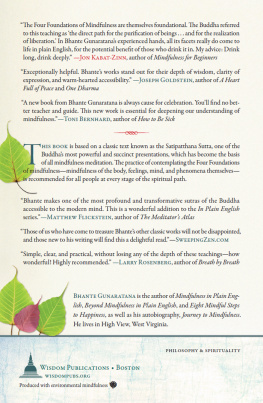
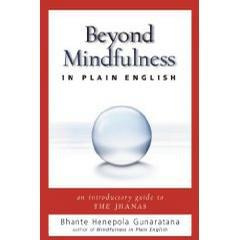
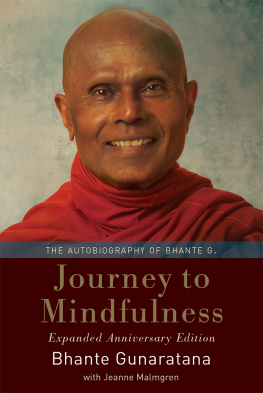
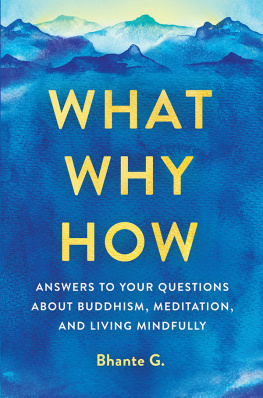
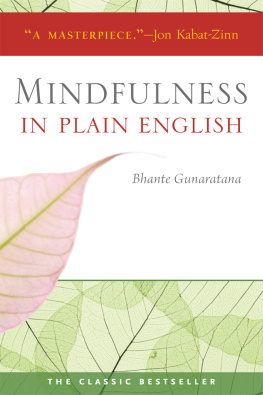
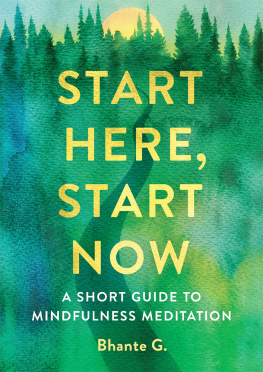
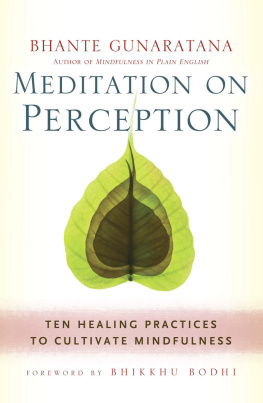
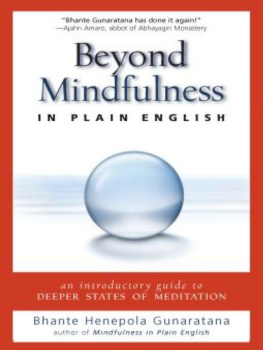
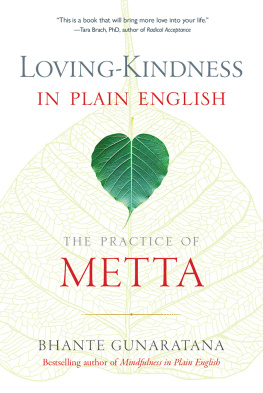
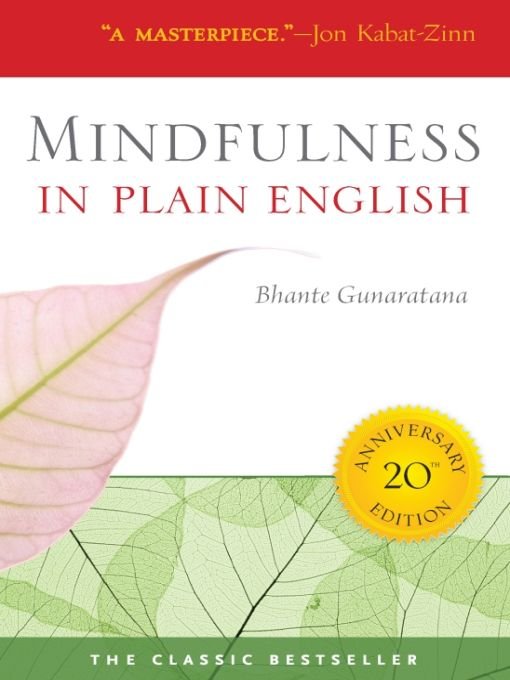
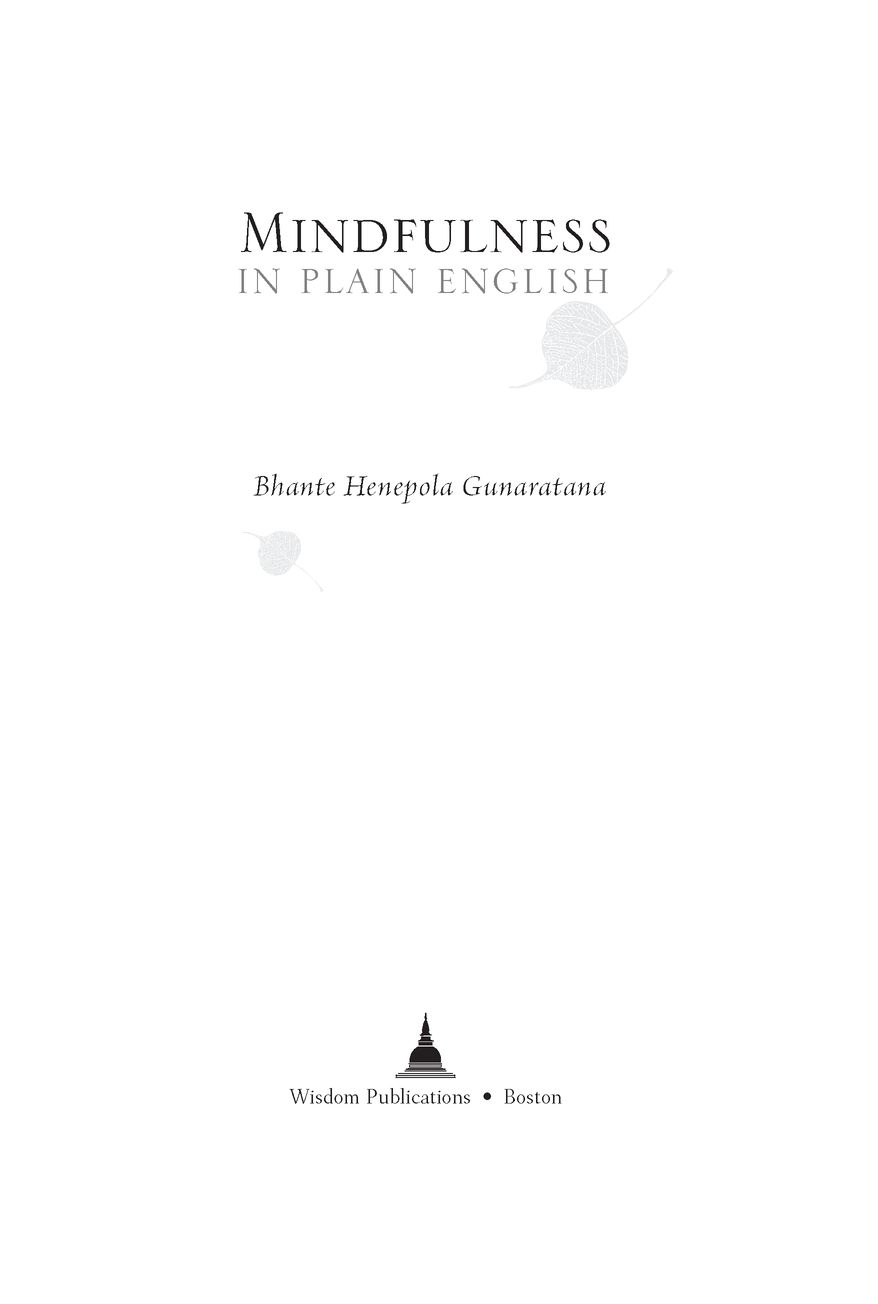
 Preface
Preface Acknowledgments
Acknowledgments